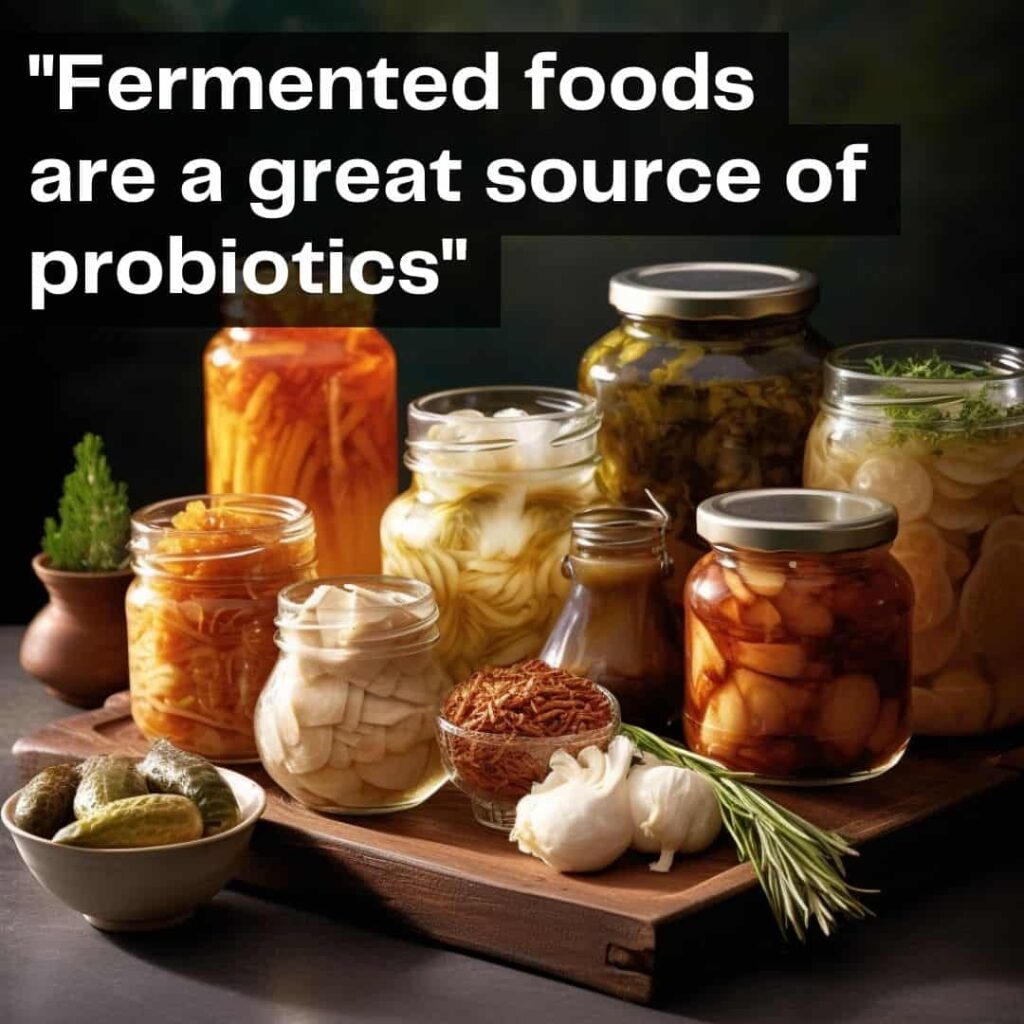Good gut health is essential for overall well-being. A healthy gut helps in digestion, improves immunity, and even supports mental health. One of the most effective ways to improve gut health is by adding fermented foods to your daily diet. In this article, we’ll explore the best fermented foods for gut health, how they work, and why you should include them in your meals.
What Are Fermented Foods?
Fermented foods are those that have gone through a natural process called fermentation. During this process, natural bacteria feed on the sugar and starch in the food, creating beneficial enzymes, B-vitamins, omega-3 fatty acids, and probiotics. These probiotics are the key elements that make fermented foods so good for your gut.
Why Are Fermented Foods Good for Gut Health?
The human gut contains trillions of bacteria, known as the gut microbiome. When this microbiome is balanced, your digestion, immune system, and even mood function better. Fermented foods provide good bacteria, known as probiotics, that help balance the gut flora.
Best Fermented Foods for Gut Health
Here are the top fermented foods that can naturally boost your gut health:
1. Yogurt
Yogurt is one of the most popular fermented foods for gut health. It is made by fermenting milk with healthy bacteria, mainly Lactobacillus and Bifidobacterium.
Benefits:
- Improves digestion
- Enhances immune function
- Reduces bloating
Make sure to choose plain, unsweetened yogurt with live and active cultures.
2. Kefir
Kefir is a fermented milk drink similar to yogurt but with more probiotics. It contains around 30 different strains of bacteria and yeast.
Benefits:
- Promotes digestion
- Helps in lactose digestion
- Supports a healthy gut lining
It’s a great choice for people who are lactose-intolerant but still want dairy benefits.
3. Sauerkraut
Sauerkraut is fermented cabbage that is rich in fiber and probiotics. It’s low in calories and high in vitamin C and K.
Benefits:
- Aids digestion
- Strengthens immunity
- Reduces inflammation
For best results, use raw, unpasteurized sauerkraut, as pasteurization kills beneficial bacteria.
4. Kimchi
Kimchi is a spicy Korean side dish made from fermented vegetables, mainly cabbage and radish.
Benefits:
- Improves gut bacteria
- Boosts immune health
- Contains antioxidants
It’s flavorful and adds a spicy punch to meals while supporting your gut health.
5. Miso
Miso is a Japanese seasoning made from fermented soybeans, salt, and a fungus called koji. It’s usually used in soups and sauces.
Benefits:
- Supports digestive health
- Rich in essential minerals
- Adds umami flavor to dishes
Avoid overcooking miso to keep its probiotic benefits intact.
6. Tempeh
Tempeh is a firm soybean cake that’s been fermented and often used as a meat substitute.
Benefits:
- High in protein and probiotics
- Improves nutrient absorption
- Supports gut flora balance
Tempeh is a great choice for vegetarians looking to improve gut health.
7. Kombucha
Kombucha is a fermented tea drink that’s slightly fizzy and sweet-sour in taste.
Benefits:
- Detoxifies the body
- Improves digestion
- Boosts energy
Choose brands with low sugar and look for “raw” or “unfiltered” on the label.
8. Pickles (Fermented in Brine)
Not all pickles are good for gut health. Only fermented pickles made in salty water (brine), not vinegar, provide probiotics.
Benefits:
- Helps maintain gut balance
- Supports digestion
- Adds crunch and flavor
Always check labels to ensure the pickles are naturally fermented.
Tips to Add Fermented Foods to Your Diet
- Start with small portions to allow your gut to adjust
- Combine different fermented foods for variety
- Store them properly (most need refrigeration)
- Choose products with “live and active cultures”
Final Thoughts
Including fermented foods for gut health in your daily diet is a simple and natural way to improve your digestion, immunity, and overall health. These foods are not only nutritious but also delicious and easy to incorporate into your meals. Whether it’s a spoonful of yogurt in the morning or a glass of kombucha in the afternoon, small changes can make a big difference for your gut.
FAQs
Q1. How often should I eat fermented foods for gut health?
You can start with small servings 3–4 times a week and gradually increase to daily intake.
Q2. Are all fermented foods probiotic?
No, only those with live and active cultures offer probiotic benefits.
Q3. Can children eat fermented foods?
Yes, in small and age-appropriate amounts, fermented foods are safe and healthy for kids.



